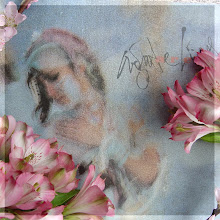我們心底存有一個遙遠的國度,在那兒
完全沒有自私 。 - 卡謬 ( Camus, 7 Nov. 1913- 4 Jan. 1960 )

勞工之聲 , 冷戰傷兵 , 二十世紀的舒伯特。
( 東德國歌 , 列寧安魂曲 , 德意志安魂曲 ) 左派作曲家
Hanns Eisler, 6 Jun. 1898- 6 Sep. 1962
Lenin Requiem, 1937
列 寧 安 魂 曲 ( 為列寧 22 Apr. 1870- 21 Jan. 1924 過世十周年而做 )
As Lenin was dying
(as they tell the story)
a soldier of the death watch
said to his comrades:
I didn't want to believe it!
I didn't want to believe it!
I went in there,
where he is lying,
and said to him:
"Ilyich, Ilyich! The exploiters are coming!"
He didn't move.
Baritone Solo :
Now I know that he is dead.
Aria (Alto with Choir) :When a good man wants to go away,
how can you hold him back?
Tell him
what he's needed for:
that will hold him,
that will hold him!
When a good man wants to go on,
how can you hold him back?
Tell him what he's needed for:
that will hold him,
that will hold him!
What could hold Lenin?
Baritone Solo :The soldier thought:
When he hears
the exploiters are coming,
he might be sick,
and he will get up from his bed anyway.
Perhaps he will come on crutches.
Perhaps he will let himself be carried,
but he will get up and fight
against the exploiters,
against the exploiters.
The soldier knew
that Lenin, his whole life long,
had fought against the exploiters.
Recitative (Alto) :And when the soldier was helping
storm the winter palace,
he wanted to go back home,
because on the fields
the winter crops were ready for planting.
Then Lenin said to him:
I know, but stay!
There are still exploiters,
and so long as exploitation still exists,
the fight against it must go on.
As long as it exists,
the fight against it must go on,
must go on.
Chorus :Those who are weak don't fight.
Those who are stronger might fight
for an hour.
Those who are stronger still might fight
for many years.
The strongest fight
their whole life.
They are the indispensable ones.
In Praise of the Fighters (Ballad, baritone and choir) :There are many who just get in the way:
it's better when they move on.
But when he's gone, he is missed.
He organizes his fight
around better wages,
for water to make tea,
for power in the state.
He asks of property:
Where do you come from?
He asks of opinions:
Whom do you benefit?
Where everyone else is silent
there will he speak,
and where oppression rules
and others blame it on fate,
he will name names.
Where he sits at table,
dissatisfaction sits there too,
the food will be bad
and the room will seem confining.
Wherever they chase him,
revolt will go with him,
and wherever they've chased him out,
unrest will remain behind anyway.
Alto Solo and Chorus :Towards the time when Lenin died
and was missed,
the victory had been won by fighting,
but the country lay in ruins.
The masses had broken their chains
but the way forward was still in darkness.
When Lenin died,
the soldiers sat on the curbstones and wept,
and the workers ran from their machines
and shook their fists to the skies.
When Lenin died,
it was as if the tree and the leaves said,
I am leaving now.
Alto Solo, Baritone Solo and Chorus :Since that time thirteen years have passed.
A sixth of the world is free from exploitation.
When they hear the warning—
the exploiters are coming!—
the masses rise up again
ready to fight.
Lenin is enshrined
in the great heart
of the working class.
He was our teacher.
He fought with us.
And is now enshrined
in the great heart
of the working class.
Origin text by Brecht ( 10 Feb. 1898- 14 Aug. 1956 )








Gerhart Eisler (20 Feb. 1897- 21 Mar. 1968), a German politician, brother of Hanns Eisler, was also a Communist.

☭ ( below) Eisler's grave in Berlin, near Brecht in the Dorotheenstadt Cemetery. Link here.



1 則留言:
前 德意志民主共和國(東德, Deutschen Demokratischen Republik(DDR, 7 Oktober 1949– 3 Oktober 1990))國歌
__Auferstanden aus Ruinen__
從廢墟中掘起/ 廃墟からの復活
1.
Auferstanden aus Ruinen und der Zukunft zugewandt,
laß uns Dir zum Guten dienen, Deutschland, einig Vaterland.
Alte Not gilt es zu zwingen, und wir zwingen sie vereint,
denn es muß uns doch gelingen, daß die Sonne schön wie nie
über Deutschland scheint,über Deutschland scheint.
2.
Glück und Friede sei beschieden Deutschland, unserm Vaterland.
Alle Welt sehnt sich nach Frieden, reicht den Völkern eure Hand.
Wenn wir brüderlich uns einen, schlagen wir des Volkes Feind!
Laßt das Licht des Friedens scheinen, daß nie eine Mutter mehr
ihren Sohn beweint,ihren Sohn beweint.
3.
Laßt uns pflügen, laßt uns bauen, lernt und schafft wie nie zuvor,
und der eignen Kraft vertrauend, steigt ein frei Geschlecht empor.
Deutsche Jugend, bestes Streben unsres Volks in dir vereint,
wirst du Deutschlands neues Leben. Und die Sonne schön wie nie
über Deutschland scheint,über Deutschland scheint.
# # # #
1.
掃清廢墟,
重建家園;
面向未來展雄翅。
為了你的崇高事業,
統一的祖國德意志。
不讓舊日災難重臨,
為此我們團結緊。
我們要讓大家看見空前燦爛的陽光
照亮祖國的天空,照亮祖國的天空。
2.
幸福前程,
和平生活,
降臨祖國德意志。
世界人民渴望和平,
伸出手來去支持。
兄弟一般,
團結一心,
就能戰勝敵人。
要使和平光輝永照,
母親不再為兒子哭泣哀悼,哭泣哀悼。
3.
我們耕種,
我們建築,
學習、創造幹勁足,
自由的一代茁壯成長,
相信自己有力量。
德國青年不要辜負人民的期望。
你們就是祖國的新苗,
空前燦爛的陽光
照亮祖國的天空,照亮祖國的天空。
# Der Text:
Johannes R. Becher (22 Mai 1891 _München- 11 Oktober 1958 _Berlin)
# Die Melodie:
Hanns Eisler (6 Juli 1898 _Leipzig- 6 September 1962 _Ost-Berlin)
張貼留言